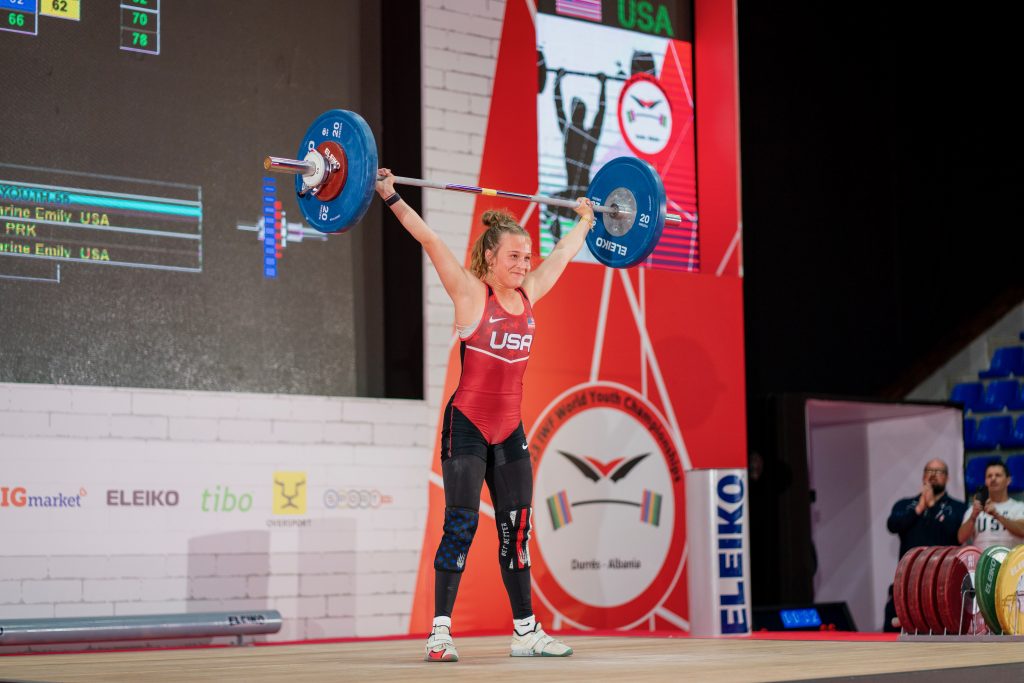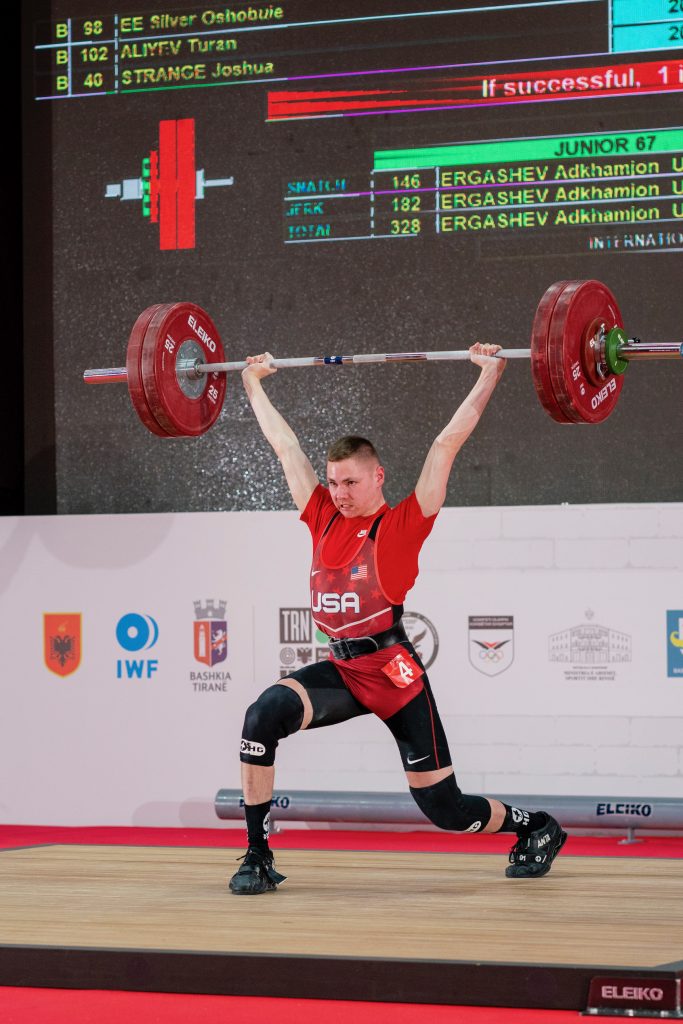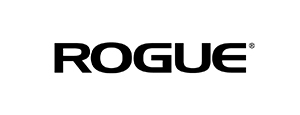From grassroots to the Olympics
With 17 athletes in Durres (ALB), the US team is the nation with more competitors at the IWF World Youth Championships. Having medalled at the previous six editions of the event, the North American delegation naturally expects to have some podium visibility in 2023. After the third day of the youth global showcase, none of the US lifters has yet reached a top-3 finish, but for Suzy Sanchez, the Team Leader, this is not the main objective.
“With the youth, we just want them to have a good time. It’s very important in terms of development, so they can experience international competition and improve their long-term athletic progress,” states Sanchez. “Therefore, no big expectations other than athletes having fun”. With almost half of the team members (8/17) coming to their first international event, it is fundamentally a time of discovery. “They are all so excited to be here! Many of them had never travelled abroad or to Europe. So, they were quite thrilled to learn about a new culture here in Albania, to try new food, and to make new friends. We spent a lot of time on the beach, so they really enjoyed that”.

However, the US Team Leader admits that there are solid hopes for a strong performance from Corey Robinson, in the men’s 102kg. “He is one of our highest athletes coming to Albania. We would love to see a great result from him”. Competing on Friday, Robinson has an entry total of 266kg in his category. Since the event’s creation in 2009, the US team has won 58 medals in the competition (with a maximum of 16 linings in 2019).
When asked to elaborate on the national youth programme in the USA, Sanchez explains: “We don’t have a specific nationwide model. All of our youth come from our local clubs. In the US, weightlifting has a decentralised training structure, so individual clubs are recruiting locally. Those athletes then qualify for the Nationals and can compete together. It’s a great grassroots effort across the entire nation”.

This model reached its limits during the Covid pandemic and provoked a disruption in the career development of many young athletes. “It definitively impacted our local clubs. As we have such a decentralised system, when many cities shut down due to the pandemic, a lot of our club owners lost their businesses. Many of them were able to rebuild and expanded their services to include online coaching programmes (remote coaching) and they have now large remote teams,” Sanchez recalls. “It also allowed for more shared information across the country, from coaches to coaches and from athletes to athletes. There is always something positive from something like this, so in this case I believe it was the development of online models, virtual coaching symposiums, and even online competitions”.
The always-challenging transition from youth/junior to senior level is also a topic of concern. “Every year, our Youth National Championships grows and grows – at our biggest event, we had five platforms and over 900 athletes. We continue anticipating growth among youth, so it’s going really well,” she admits. “Normally, we have an average of 30% of our youth athletes that proceed then to the senior level. We would like to raise this average, but it’s already quite good. We have a couple of Olympic hopefuls for LA 2028 and some future world team members,” Sanchez reveals.
The question is therefore obvious: from the group of athletes present in Albania, will we see some of them at the 2028 Olympics in Los Angeles? “That’s the hope!” But for that, weightlifting has to definitively secure its place in the Games’ programme. “I love weightlifting and we should all love seeing weightlifting in the Olympics!”
By Pedro Adrega, IWF Communications












